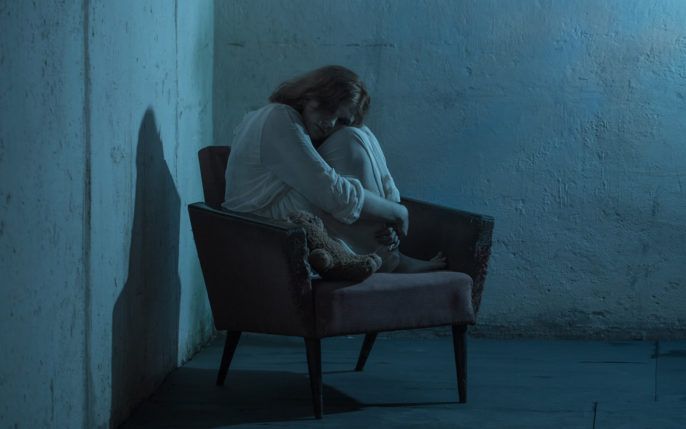
* Written by ‘Sarah’, a healed survivor in long-term recovery from sexual abuse. Sarah’s story can be read in the book Sarah: From an Abusive Childhood and the Depths of Suicidal Despair to a Life of Hope and Freedom, Sarah Shaw (Lancaster: Sovereign World Ltd., 2009).
Is there any real hope of healing and long-term recovery for a victim of sexual abuse? What a critical question that’s crying out for an answer, with an estimated 1 in 13 men and 1 in 5 women globally today, having experienced sexual abuse in childhood.**
The vast majority of these undoubtedly suffer every day the legacy of a guilty secret that will have festered over a lifetime into a ball of shame, injustice, pain, anger, bitterness, resentment, anxiety and utter worthlessness. For some reading these words, this may be an agonising question of personal horror. But the unreserved answer is, yes, there is real hope: there is a solid pathway to full and lasting healing for those who have suffered even the worst of abuse.
there is a solid pathway to full and lasting healing for those who have suffered even the worst of abuse.
Sexual abuse is an anathema to God. He designed us to be loved, to absorb the truth that we’re precious. Abuse does the opposite. Abuse says: ‘You’re nothing.’ Abuse is a robber of love’s empowerment for living. It abandons you to basic survival instinct, that easily drives you to block out dark memories as if they never happened. It compels you to strive to earn some sense of worth to compensate for the toxic lie that poisons life.
Flashbacks, nightmares and painful emotions seep through from bound, gagged and buried abuse. But these are likely to be met with punishing self-recrimination, perhaps even self-harming. The wedge of self-hatred forces an ever-widening gap between suffering and survival.
The wedge of self-hatred forces an ever-widening gap between suffering and survival.
Such a life would be utterly hopeless, except for the journey we can walk with God. Until we take those first steps, isolation, anxiety, depression and all manner of mental health problems beckon; and the unmet need for love reaches out to be satisfied any way it can, through comfort-eating, alcohol, drugs, smoking, the internet or something else. But there is a way beyond this.
God is love. His love is beautiful. Perfect. Life-giving. And, thankfully, He has no cruel substitutes. The journey with God leads us away from the divided pathway to wholeness, inner peace and real healing. As we allow His Holy Spirit to help us close gaps and, step-by-step, bring connection to all that’s been buried, He rebuilds broken trust. He walks with us so faithfully until we reach the point where we’re able to receive His real love that meets the deepest need and empowers us to release the ball of emotion and, even, to forgive. It’s then that we really know we’re not surviving any more. Life in all its fullness has come.
It can feel so very hard to even start the climb. And this journey is not without challenge, but for those suffering with the aftermath of abuse, it’s definitely worth taking those tentative first few steps. In order to help begin, let’s look at what they might look like:
If writing isn’t your thing, drawing, painting, using plasticine or clay are all great ways of expressing deep things. Or make a collage, cutting out words and pictures from old magazines. Or cut out a heart from card, fabric or wood and use one side to depict your view of yourself, and the other side to represent who God says you are.
These are small steps, but taken one at a time, are the beginning of God’s path to true healing and full recovery.
These are small steps, but taken one at a time, are the beginning of God’s path to true healing and full recovery. His promise to those who have been abused, is found in Isaiah 62:2-3: ‘You will be called by a new name that the mouth of the Lord will bestow. You will be a crown of splendour in the Lord’s hand, a royal diadem in the hand of your God.’
This is a very big issue and it may be this would be the opportunity to come to an Ellel Centre to start a walk towards healing. Booking a Healing Retreat may be the place to begin or calling a Ministry Manager at one of our Ellel centres as they are ideally placed to guide each person to the best starting point.
* Written by ‘Sarah’, a healed survivor in long-term recovery from sexual abuse. Sarah’s story can be read in the book Sarah: From an Abusive Childhood and the Depths of Suicidal Despair to a Life of Hope and Freedom, Sarah Shaw (Lancaster: Sovereign World Ltd., 2009).
** Taken from a 2009 metastudy from the University of Barcelona published in Clinical Psychology Review, “Prevalence of Child Sexual Abuse in Community and Student Samples: A Meta-Analysis,” which analysed 65 research studies across 22 countries to estimate an “overall international figure” for sexual abuse.
You might also like
Connect with us
For general UK enquiries
contact Ellel Grange on
01524 751651 or hello@ellel.org
Or contact your nearest centre